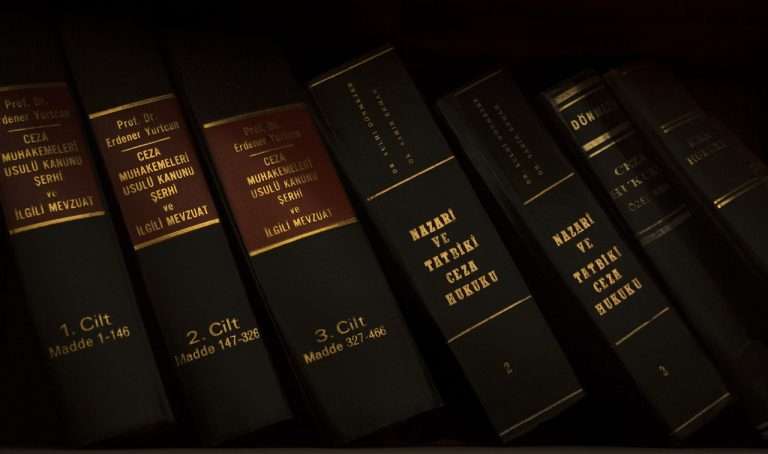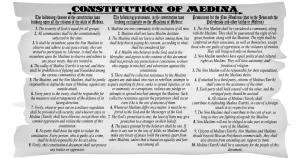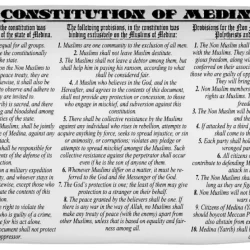Law, a captivating realm that governs our lives, holds the key to justice, order, and harmony in society. But what exactly is law, and where does it originate from? Join us on an exhilarating journey as we dive into the enchanting world of law and explore its diverse and fascinating sources. In this adventure, we will unravel the mysteries behind the sources of law i.e., legislation, precedent, customary law, and common law, while also delving into the realms of international law and administrative law.
What is Law?
Law is a system of rules that are created and enforced through social or governmental institutions to govern behavior. It has been defined both as “the Science of Justice” and “the Art of Justice.” State-enforced laws can be made by a collective legislature or by a single legislator, resulting in statutes, by the executive through decrees and regulations, or established by judges through precedent, normally in common law jurisdictions. Private individuals may create legally binding contracts, including arbitration agreements that adopt alternative ways of resolving disputes to standard court litigation. The creation of laws themselves may be influenced by a constitution, written or tacit, and the rights encoded therein. The law shapes politics, economics, history, and society in various ways and serves as a mediator of relations between people.
What is Law? What are the different types of law?
The Sources of Law
What are the sources of law? This is a fundamental question that every legal scholar and practitioner should be able to answer. Law is not a static or fixed entity, but a dynamic and evolving phenomenon that reflects the values, norms, and principles of a society. It is essential for maintaining order, protecting rights, and resolving disputes. The law can be derived from various sources, such as legislation, precedent, custom, religion, professional opinion, morality, and international agreements. In this article, we will explore the main sources of law i.e. legislation, precedent, custom, religion, and professional opinion.
Legislation
Imagine a grand legislative assembly, where elected representatives gather to forge the laws that govern us. Legislation is the majestic realm where lawmakers craft statutes, acts, and ordinances. It’s akin to an artisan’s workshop, where ideas are molded into tangible laws that set the tone for societal conduct. This source breathes life into our legal framework, capturing the will of the people in a symphony of statutes.
:max_bytes(150000):strip_icc():format(webp)/illustration-of-a-session-of-the-roman-senate-517212434-589a3b645f9b5874eebf094d.jpg)
The term legislation is derived from two Latin words, Legis meaning law, and Latum meaning to make, put or set. Etymologically, legislation means the making or setting of law. According to Salmond, “Legislation is that source of law which consists in the declaration of legal rules by a competent authority.” Austin thinks that there can be no law without legislation.
This is the law that is created by a legislature, such as a parliament or a congress. Legislation can be enacted at different levels of government, such as federal, state, or local. Legislation can also be classified into different types, such as statutes, regulations, or ordinances. Legislation is usually written in a formal and precise language and has a binding effect on the people who are subject to it. Legislation is usually written in formal and precise language that defines the rights and obligations of the parties involved.
The Ideal Form Of Law, How It Ought To Be!
According to Salmond, legislation is either supreme or subordinate. Supreme legislation is that which proceeds from the sovereign power in the state. It can not be repealed, annulled, or controlled by any other legislative body. On the other hand, subordinate legislation is that which proceeds from any authority other than the sovereign authority. It is dependent for its continued existence and validity on some other superior authority.
Precedent
Step into the world of courtrooms, where judges don the mantle of storytellers. Through their sagacious decisions, they weave the tapestry of precedent—a treasury of legal wisdom that guides our future. A precedent is a law that is created by judges through their decisions in court cases. Precedent is based on the principle of stare decisis, which means to stand by the decision. This means that judges are bound by the previous decisions of higher courts in similar cases. Precedents can also be persuasive, which means that judges can follow the previous decisions of lower courts or foreign courts if they find them convincing. The precedent is usually written in descriptive and analytical language that explains the facts, issues, arguments, and reasoning of the case.
Custom
Close your eyes and envision a quaint village, a place where traditional dances in the air and customs thrive. In this enchanted realm, customary law reigns supreme. Customary law is a law that is based on the common practices of a society. Customary law is often unwritten and informal, but it can have a strong influence on the behavior and expectations of the people. Customary law can vary from place to place and from group to group within a society. Customary law can be recognized by courts as a source of law if it meets certain criteria, such as being ancient, continuous, reasonable, and consistent. Customary law can also be incorporated into legislation or precedent if it reflects the values and norms of society.
What is Woke Culture? Why is it so controversial?
Customary law is usually expressed in a narrative and normative language that tells the stories, traditions, and values of society. A study of ancient law shows that in primitive societies, the lives of the people were regulated by customs that developed spontaneously according to circumstances. When the same thing is done again and again in a particular way, it assumed the form of custom. Holland rightly points out custom originated in the conscious choice by the people of the more convenient of the two acts.
Common Law
Enter a majestic courtroom, where judges adorned in robes balance fairness and justice on the scales of common law. Common law, the ever-evolving masterpiece, blends the principles of reason, equity, and tradition.
Common law is a law that is based on fairness and justice. Common law is derived from the natural law theory, which holds that there are universal moral principles that govern human conduct. Common law can be distinguished from civil law, which is based on codified rules and principles. Common law can also be influenced by equity, which is a branch of law that provides remedies for situations where the strict application of the law would result in injustice. Common law is usually applied in a flexible and creative way that adapts to the circumstances of each case. Common law can also be adapted to changing circumstances and new situations by applying the doctrine of equity.
A Workable Definition Of Law, Probably!
Religion
Religion is a system of beliefs and practices that relate humanity to spirituality and moral values. Religious texts, such as the Bible, the Quran, and the Torah, often contain laws that are considered to be binding on believers. These laws may deal with a wide range of topics, including marriage, divorce, inheritance, and criminal behavior.
In some cases, religious law is codified into state law. For example, Islamic inheritance law, derived from the Quran, is a remarkable example of how religious scripture serves as a source of law. In the Islamic tradition, the Quran provides specific guidelines and principles regarding the distribution of wealth and property after a person’s death. In the United States, the Ten Commandments are displayed in many courtrooms and are considered to be a source of moral guidance for judges and lawyers.
Islamic religious scripture, particularly the Quran, serves as a source of law in various areas such as divorce, marriage, civil matters, and criminal matters. Islamic law, known as Sharia law, provides guidance and principles derived from the Quran for Muslims navigating these aspects of life. It outlines procedures for divorce, sets requirements and obligations for marriage, guides civil matters including contracts and property rights, and offers principles for criminal justice. Islamic law is incorporated into the legal systems of some countries, ensuring compliance with Islamic religious scripture in these areas.
Professional Opinion
Professional opinions play a crucial role in shaping legal decisions by providing expert insights and expertise in specific fields. These opinions are derived from professionals who have specialized knowledge and experience, such as doctors, scientists, engineers, economists, and other experts.
In cases where there is no clear law or precedent to guide a particular legal issue, professional opinions become invaluable. Courts and judges rely on these opinions to understand complex and technical matters, allowing them to make informed decisions. For instance, in a medical malpractice case, medical experts may be called upon to offer their opinions on whether the standard of care was met or if negligence occurred. Their expertise assists the court in determining the outcome of the case.
Furthermore, professional opinions are not limited to cases without existing laws. They also play a crucial role in the interpretation and application of existing laws. Laws can sometimes be open to different interpretations, and in such situations, legal professionals may seek the opinions of experts in relevant fields to provide clarity. For example, in contract disputes, business experts may be consulted to interpret complex contractual terms and industry practices, aiding in the resolution of the legal matter.
By incorporating professional opinions, the legal system benefits from the expertise of professionals who possess specialized knowledge and experience. This helps bridge the gap between complex technical matters and legal decision-making, enabling judges and courts to make well-informed judgments based on the most reliable and up-to-date information available.
How minorities are being oppressed in India?
The sources of law are the vibrant colors that paint the canvas of our legal system. From legislation and precedent to customary law and common law, each source plays a unique role in shaping society. As we journey through the realms of international law and administrative law, we realize the interconnectedness of our global landscape and the importance of effective governance. They ensure fairness, protect individual rights, and provide mechanisms to resolve disputes. By embracing the rich tapestry of legal sources, we cultivate a deep appreciation for the intricate web of laws that guide our daily lives.















